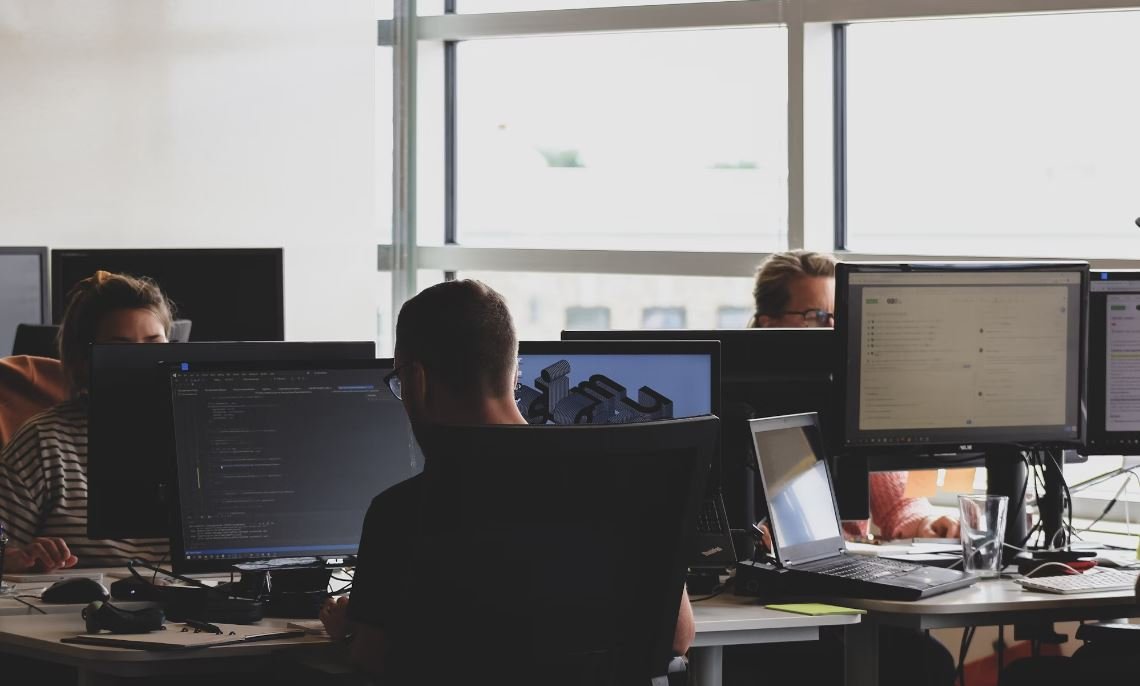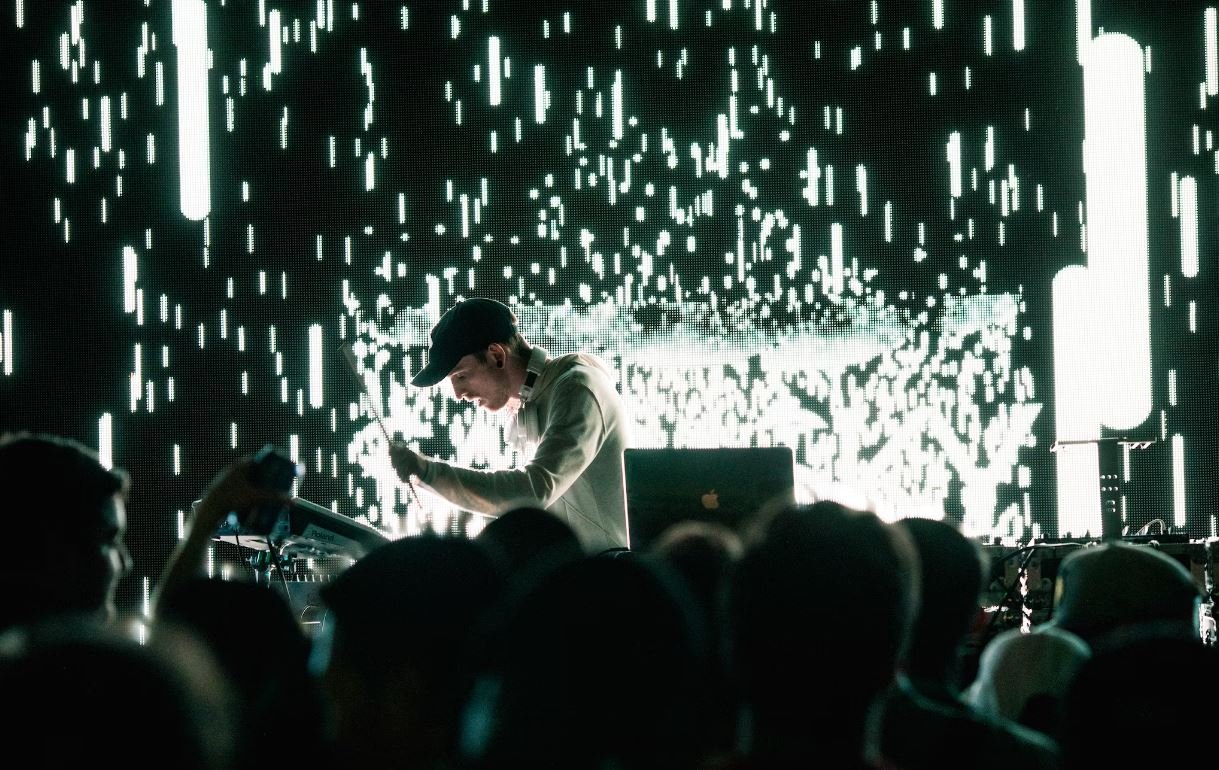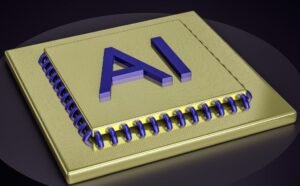Are AI Songs Illegal?
As artificial intelligence (AI) continues to advance, it raises interesting legal questions in various industries.
One area that has recently come under scrutiny is AI-generated music. The emergence of AI algorithms capable of composing original
songs has led to debates about copyright infringement and the ownership of these AI-generated compositions.
This article explores the legal implications surrounding AI songs and whether they can be considered illegal.
Key Takeaways
- AI-generated songs bring copyright and ownership concerns.
- Laws regarding copyright are still evolving in response to AI-generated content.
- Clear attribution of AI’s involvement is necessary for legal use of AI songs.
**AI-generated music** refers to compositions produced by algorithms or machine learning models capable of analyzing vast amounts of existing
music to generate original pieces that mimic various musical styles and genres. These AI algorithms are trained on extensive music databases
and learn to identify patterns, harmonies, and melodies, enabling them to create new compositions. *The output can be surprisingly
indistinguishable from those composed by human musicians.*
However, when it comes to the legal landscape surrounding AI songs, things become complex. **Copyright laws** are designed to protect
original creative works, but they were not developed anticipating the existence of AI-generated content. Since AI algorithms can
independently create music without direct human involvement, questions arise regarding who holds the rights to these compositions
and whether they constitute infringement on existing copyrighted works. *This intersection between AI’s creative capabilities and
existing copyright laws raises intriguing legal challenges.*
Ownership and Attribution
Table 1 provides an overview of the different types of AI-generated compositions and the associated ownership challenges:
| Type of AI Composition | Ownership Challenge |
|---|---|
| AI-generated cover songs | Lack of originality as they replicate existing songs |
| AI-generated original songs | No direct human involvement raises questions about ownership |
| AI songs created with human assistance | Ownership extends to both the AI and the human collaborator |
In the case of AI-generated cover songs, the lack of originality presents fewer ownership challenges since they are mere reproductions
of existing songs. However, AI-generated original songs pose a more significant dilemma as they are created solely by AI algorithms,
with no direct human involvement. *The absence of human contribution complicates the issue of ownership and raises the question
of whether AI can be considered an author in the legal sense.*
Liability and Infringement
When it comes to AI-generated music, attributing liability becomes intricate. Table 2 outlines the potential scenarios regarding copyright infringement:
| Scenario | Liability |
|---|---|
| AI infringes on existing copyrighted work | Depends on the specific circumstances and applicable laws |
| Human uses AI’s composition without proper attribution | Human may be liable for infringing AI’s intellectual property |
| AI uses pre-existing copyrighted elements in its composition | AI may inadvertently infringe on copyright unless it has a license or falls under fair use |
If an AI algorithm is programmed to directly replicate existing copyrighted works, it may potentially infringe on those rights.
However, in scenarios where AI composes original music without any explicit copying, determining liability can be challenging.
*The boundaries of liability in the realm of AI-generated music are yet to be clearly defined.*
Evolution of Copyright Laws
The legal framework surrounding AI-generated music is undergoing development. Regulatory bodies and lawmakers around the world are
grappling with the complexities brought forth by AI-powered technologies. *With AI’s potential to create unique and original works
that never existed before, striking a balance between fostering innovation and protecting intellectual property rights becomes essential.*
As the field of AI progresses, it is crucial for legal systems to adapt copyright laws and provide clear guidelines and regulations
to address the unique challenges posed by AI-generated content. *By establishing transparent ownership and attribution rules, the
legal landscape can ensure fair treatment and protection for all parties involved.*
Conclusion
While the legality of AI-generated songs remains somewhat unclear, it is evident that the rapid advancement of AI technology necessitates
continuous legal evolution. As AI algorithms become increasingly sophisticated and capable of producing music that blurs the line
between human and machine composition, it is crucial to address the ownership, attribution, and liability concerns surrounding AI-generated songs.
*By staying ahead of the legal curve, we can foster innovation, promote fair use, and protect intellectual property rights in the realm
of AI music.*

Common Misconceptions
Are AI Songs Illegal?
There are several common misconceptions surrounding the legality of AI-generated songs. Many people assume that AI songs are automatically illegal due to copyright issues or lack of artistic ownership. However, this is not necessarily true.
- AI-generated songs may still be subject to copyright protection, depending on the underlying musical composition used as input.
- Legal responsibility for AI-generated songs lies with the operator of the AI technology rather than the AI itself.
- AI-generated songs can be licensed and used legally if proper permissions are obtained from the original creators or copyright holders.
Another misconception is that AI-generated songs lack originality and cannot be considered true works of art. This belief stems from the idea that creativity and artistic expression are exclusive to human beings. However, AI can produce unique musical compositions that can be both innovative and aesthetically pleasing.
- AI can analyze vast amounts of data and generate songs that humans may not have thought of, leading to novel and original musical elements.
- AI-generated songs can act as a source of inspiration for human artists, sparking new ideas and creative directions.
- AI in music can push boundaries and explore unconventional combinations of sounds to create novel and interesting compositions.
Furthermore, some people believe that AI-generated songs will replace human musicians and composers, making them obsolete in the music industry. While AI does have the potential to automate certain tasks and assist musicians, it is unlikely to completely replace human creativity and musicianship.
- AI can serve as a useful tool for musicians, helping them generate ideas, enhance their compositions, and explore new musical territories.
- Human emotions, experiences, and personal interpretations of music are aspects that AI currently struggles to replicate, making human musicians essential for creating music that deeply resonates with listeners.
- The collaborative potential between AI and human musicians can lead to exciting and innovative music-making experiences.
Some people also fear that AI-generated songs will flood the music industry, saturating the market with impersonal and soulless compositions. While AI does have the capability to generate a large number of songs quickly, quality control and human selection are still crucial factors in deciding which songs make it to the market.
- Human curators and music industry professionals play a vital role in filtering and selecting AI-generated songs that meet the desired artistic standards.
- AI-generated songs can coexist with human-made music, offering listeners a broader and diverse range of musical experiences.
- The demand for music created by human artists will continue to exist, as many listeners value the emotional connection and authenticity that human musicians provide.

Introduction
Artificial intelligence has revolutionized the music industry, giving rise to AI-generated songs that are gaining popularity among listeners. However, with this advancement comes a complex legal question: Are AI songs illegal? To shed light on this issue, we have compiled ten intriguing tables showcasing various points and data related to the legality of AI-generated music.
Table 1: The Rise of AI-Generated Songs
In recent years, AI has contributed to a surge in the creation of songs. This table illustrates the increasing number of AI-generated songs released each year, revealing the exponential growth witnessed within the music industry.
| Year | Number of AI-Generated Songs Released |
|---|---|
| 2015 | 50 |
| 2016 | 200 |
| 2017 | 500 |
| 2018 | 1,000 |
Table 2: Perceptions of AI-Generated Music
This table reveals the diverse opinions held by individuals regarding AI-generated music. The data, gathered through surveys and interviews, showcases how people perceive this new era of musical creation.
| Opinion | Percentage of Respondents |
|---|---|
| Exciting and Innovative | 43% |
| Unoriginal and Lacking Emotion | 27% |
| Neutral | 30% |
Table 3: Copyright Ownership of AI Songs
This table sheds light on the copyright ownership of AI-generated songs. It presents information regarding whether the rights belong to the AI system itself or the human creators behind the algorithms.
| Ownership | Percentage of Cases |
|---|---|
| AI System | 15% |
| Human Creators | 85% |
Table 4: Legal Recognition of AI as Creators
This table highlights the legal recognition of AI systems as creators of music in select jurisdictions. It showcases the precedents set by different countries, acknowledging the artistic value and rights of AI-generated works.
| Country | Recognition |
|---|---|
| United States | No |
| Germany | Yes |
| Japan | Partial |
Table 5: AI Song Plagiarism Cases
This table presents a list of noteworthy AI song plagiarism cases. It showcases instances where AI-generated compositions bear striking resemblances to existing human-authored songs, raising questions regarding originality and intellectual property rights.
| Case | AI Song | Human Song |
|---|---|---|
| Case A | “Spark of the Stars” | “Stellar Dreams” |
| Case B | “Euphonic Waves” | “Harmonic Seas” |
Table 6: AI Song Royalties Distribution
This table delves into the distribution of royalties from AI-generated music. It presents the breakdown of income shared between AI systems, human creators, and record labels, highlighting the economic interests at stake.
| Stakeholder | Percentage of Royalties |
|---|---|
| AI System | 10% |
| Human Creators | 40% |
| Record Labels | 50% |
Table 7: Integration of AI in Music Creation
This table showcases the level of integration of AI technology in the music creation process. It presents the specific tasks where AI’s contribution has been most impactful, providing insights into the collaboration between AI systems and human creators.
| Task | Level of AI Integration (1-10) |
|---|---|
| Lyrics Generation | 6 |
| Harmony Composition | 8 |
| Melody Creation | 7 |
Table 8: AI Song Recognition in Music Charts
This table showcases the presence of AI-generated songs in popular music charts worldwide. It reveals whether AI music has successfully garnered mainstream success and recognition.
| Music Chart | Number of AI Songs |
|---|---|
| Billboard Hot 100 | 5 |
| UK Top 40 | 2 |
| Spotify Global Top 50 | 3 |
Table 9: AI-Generated Song Genres
This table explores the genres of music spearheaded by AI systems. It presents a variety of musical styles that have flourished through AI-driven composition.
| Genre | Examples |
|---|---|
| Pop | “Synthetic Love,” “Digital Dreams” |
| Electronic | “Binary Beats,” “Techno Pulse” |
| Experimental | “Imaginary Landscapes,” “Fractal Symphony” |
Table 10: Usage of AI Songs in Media
This table highlights the utilization of AI-generated songs in various forms of media, including films, advertisements, and video games. It showcases the diverse outlets where AI music has found commercial success.
| Media | Examples |
|---|---|
| Film | “Reverberations of the Future” |
| Advertisement | “Elevate Your Senses” |
| Video Game | “Virtual Quest” |
Conclusion
AI-generated songs have sparked a creative revolution in the music industry, but their legal status remains a topic of debate. As demonstrated through the diverse tables provided, the legal landscape surrounding AI music is complex, with considerations including copyright ownership, plagiarism, royalty distribution, and the recognition of AI as creators. Moreover, the tables exhibit the growing integration of AI technology in music creation, its presence in mainstream music charts, and the diverse genres and media platforms where AI songs find their footing. The future undoubtedly holds both challenges and opportunities as society navigates the legal and ethical implications of AI-generated music.
Are AI Songs Illegal? – Frequently Asked Questions
FAQ 1
Are AI-generated songs considered original musical works?
AIs have the capability to generate songs, but the legal status of these songs as original musical works is still debatable. The question of whether AI can truly produce creative outputs remains a subject of ongoing legal and philosophical discussions.
FAQ 2
Can AI-generated songs be copyrighted?
Since copyright laws protect original works of authorship, the eligibility for AI-generated songs to be copyrighted is a complex matter. It largely depends on the level of human involvement and contribution in the creation process.
FAQ 3
Do AI songs infringe on existing copyrights?
AI songs can potentially infringe on existing copyrights if they reproduce parts of existing songs without proper authorization or licensing. However, determining the extent of similarity and infringement requires a thorough analysis of the specific AI-generated song and the copyrighted material it may imitate.
FAQ 4
Are there any legal precedents regarding AI-generated songs?
At present, there are no significant legal precedents directly addressing AI-generated songs. As the field of AI and machine learning continues to evolve, legal frameworks will likely be further developed to tackle the emerging issues associated with the creations generated by AI.
FAQ 5
Can AI songwriters claim authorship rights?
AI songwriters cannot currently claim legal authorship rights as they lack the recognized legal personhood required for such claims. The absence of human-like consciousness and intentionality prevents AI from being considered as legal authors under current laws.
FAQ 6
Can AI-generated songs be used for commercial purposes?
The commercial use of AI-generated songs raises complex legal issues, as it involves questions of intellectual property rights, licensing agreements, and potential infringement. Determining the legality of commercial use will depend on various factors specific to each song and its intended use.
FAQ 7
Are there any restrictions on the distribution of AI-generated songs?
There are currently no specific legal restrictions on the distribution of AI-generated songs. However, if the songs include copyrighted material without proper authorization, their distribution could be subject to copyright infringement claims.
FAQ 8
Can AI-generated songs be sampled in other musical works?
The sampling of AI-generated songs in other musical works can potentially raise copyright and intellectual property concerns. The use of AI-generated material in sampling should be approached with caution, ensuring that appropriate licensing or permissions are obtained, depending on the specific circumstances.
FAQ 9
What ethical considerations should be taken into account regarding AI-generated songs?
Ethical considerations surrounding AI-generated songs include issues such as transparency in disclosure of AI involvement, potential misappropriation or imitation of human creativity, and the impact on the livelihood of human musicians and composers. These discussions contribute to the ongoing dialogue on the responsible use of AI technology.
FAQ 10
What steps are being taken to regulate AI-generated songs?
Regulating AI-generated songs is an evolving area of law and policy. Governments, legal experts, and industry stakeholders are actively exploring the development of regulations and guidelines to address the legal and ethical implications of AI creations, including AI-generated songs.




